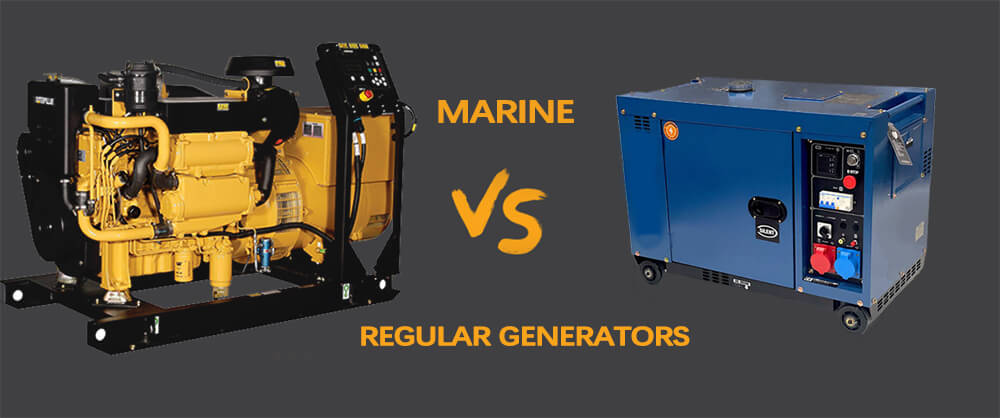Precautions for oil used in diesel gensets
- BY BISON
Table of Contents
Commonly known as gensets, diesel generator sets serve as a dependable backup power solution for diverse applications. The oil, which lubricates and cools the engine, is a crucial component of a genset. Appropriate management and upkeep of the oil are vital for the genset’s efficient and secure functioning.
When utilizing oil in diesel gensets, certain precautions should be observed, such as routinely monitoring and maintaining the oil level, selecting the right oil type for the specific genset and operational conditions, and disposing of used oil correctly. Additionally, it is crucial to watch for any indications of contamination or deterioration in the oil, as these can significantly impact the genset’s performance and longevity.

What precautions should be taken for oil in diesel generator sets?
Consistently monitoring and maintaining oil levels
Regular assessments of the oil level in diesel generator sets, whether daily or weekly based on usage, are crucial. The oil level must be checked when the generator is at its normal operating temperature but not in use. In case the oil level is insufficient, it needs to be topped up with the appropriate oil type to the suggested level.
Utilizing the appropriate oil type
The oil used in a diesel generator set greatly influences the engine’s efficiency and lifespan. It is vital to use the oil recommended by the generator’s manufacturer, which can typically be found in the owner’s manual or on the oil fill cap. This ensures that the oil satisfies the generator’s specific needs and is compatible with the engine.
Appropriate disposal of used oil
To avoid environmental contamination, used oil must be disposed of correctly. It should be gathered in a suitable container and transported to a recycling or disposal facility. Mixing used oil with other substances or chemicals must be avoided, as it may lead to contamination.
Examining for contamination or degradation
Regular inspections of the oil for any signs of contamination, such as the presence of water, fuel, or coolant, are necessary. If contamination is found, the oil must be drained and replaced. Additionally, the oil should be monitored for signs of degradation, like thickening, discoloration, or reduced lubricating properties. If the oil is degraded, it needs to be drained and replaced.
Periodically changing the oil
Changing the oil in a diesel generator set at regular intervals is essential to ensure that the oil remains uncontaminated and maintains its lubricating properties. The frequency of oil changes will depend on the manufacturer’s guidelines and the generator’s usage.

Significance of Routine Oil Level Inspections and Maintenance
Regularly examining and sustaining the oil level in a diesel generator set is crucial for multiple reasons:
Lubrication
The engine’s lifeline is oil, which serves to lubricate its internal moving components. In the absence of adequate lubrication, the engine will suffer from accelerated wear and tear, potentially leading to premature failure.
Cooling
Besides lubrication, oil plays a role in cooling the engine by dissipating heat. A low oil level may result in insufficient cooling, causing the engine to overheat.
Performance
An engine lacking proper lubrication and cooling will underperform. This can cause reduced efficiency, higher fuel consumption, and elevated emissions.
Maintenance: Consistently monitoring and preserving the oil level can avert severe issues from arising. It is an uncomplicated, cost-effective approach to maintain the generator set and extend its service life.
Safety
Insufficient lubrication might cause engine failure, resulting in generator damage and even fires. Consequently, upholding the oil level is vital for the diesel generator set’s secure operation.
To sum up, routinely inspecting and maintaining the oil level in a diesel generator set is indispensable for ensuring adequate lubrication, cooling, performance, maintenance, and safety. It is a straightforward, economical method to preserve the generator’s optimal functioning and lengthen its lifespan.

Selecting the Appropriate Oil for Your Genset and Operational Circumstances
Choosing the right oil for a diesel generator set is crucial for adequate lubrication, cooling, performance, and engine durability. The oil type suggested by the genset manufacturer will be determined by the particular engine requirements and the operational conditions.
Engine Necessities
Various engines have distinct lubrication needs. Some engines demand specific oil types, such as mineral oil, synthetic oil, or bio-based oil. It’s vital to utilize the oil prescribed by the manufacturer, as it is designed to address the engine’s unique requirements.
Operational Conditions
The genset’s operating conditions will also influence the kind of oil needed. For instance, if the genset operates in a warm climate, a lower viscosity oil might be necessary to provide adequate lubrication at elevated temperatures. In contrast, if the genset functions in a cold climate, a higher viscosity oil might be necessary to ensure proper lubrication at lower temperatures.
OEM Suggestions
The Original Equipment Manufacturer (OEM) will advise the appropriate oil type for the diesel generator set. Adhering to these recommendations is important, as they are based on the engine’s specific requirements and the operational conditions.

Appropriate Disposal of Spent Oil and Contamination Surveillance
Appropriate disposal of spent oil and surveillance for contamination or deterioration are crucial measures in preserving a diesel generator set.
Correct disposal of spent oil
Spent oil should be gathered in a suitable container and transported to a recycling or disposal center. It is essential not to blend spent oil with other fluids or chemicals, as this can lead to contamination and complicate the recycling process. Additionally, adhering to any local guidelines concerning spent oil disposal is vital.
Contamination monitoring
Regularly inspect the oil for any indicators of contamination, such as water, fuel, or coolant. Contamination can greatly impact the genset’s performance and longevity. If contamination is found, the oil must be drained and replaced.
Degradation monitoring
The oil should also be observed for signs of deterioration, including thickening, discoloration, or a reduction in lubrication properties. Degraded oil can harm the engine and lower its efficiency. If the oil has degraded, it must be drained and replaced.
Oil examination
Periodic oil assessments can offer invaluable details about the oil’s and engine’s conditions. It can identify early indications of contamination and deterioration and give insight into the engine’s wear patterns.
By properly disposing of spent oil and monitoring for contamination or degradation, you can ensure that your genset’s oil remains clean and effective in lubricating and cooling the engine, ultimately extending the diesel generator set’s life and preserving its performance.
Diesel Gensets FAQ
What type of oil should I use for my diesel generator set?
It is important to use the oil recommended by the genset manufacturer, which is typically specified in the owner’s manual or on the oil fill cap. This will ensure that the oil meets the genset’s specific requirements and is compatible with the engine. Using the correct type of oil for your diesel generator set is essential for proper lubrication, cooling, performance, and longevity of the engine.
How often should I check the oil level in my genset?
Used oil should be collected in an appropriate container and taken to a recycling or disposal facility. It is important to not mix used oil with other liquids or chemicals, as this can cause contamination and make it difficult to recycle. Proper disposal of used oil from a genset is important to prevent environmental pollution.
How often should I check the oil level in my genset?
The oil level in a diesel generator set should be checked on a regular basis, such as daily or weekly, depending on the usage. It is important to check the oil level when the genset is at normal operating temperature and not running. Regularly checking and maintaining the oil level in a genset is essential for proper lubrication, cooling, performance, maintenance, and safety.
How can I detect contamination or degradation in the oil of my diesel generator set?
The oil should be inspected regularly for any signs of contamination, such as water, fuel, or coolant. Contamination can significantly affect the performance and lifespan of the genset. Similarly, the oil should be monitored for signs of degradation, such as thickening, discoloration, or a decrease in lubricating properties. Degraded oil can cause damage to the engine and reduce its efficiency. Regular oil analysis can also provide valuable information on the condition of the oil and the engine.
How often should I change the oil in my diesel generator set?
The oil change interval will depend on the manufacturer’s recommendations and the genset’s usage. It is important to change the oil in your diesel generator set on regular intervals to ensure that the oil is free of contaminants and that the lubricating properties of the oil remain intact.
contact us
Please complete our contact form and we will soon get back to you with expert advice.
business
Get in touch to speak with our experts!

How does the diesel generator cooling system work?
The cooling system of a diesel generator is critical to the normal operation and service life of the generator. Learn about diesel generator cooling systems with BISON’s experts.

how to convert a pull start generator to electric start
BISON will provide detailed guidance on the conversion process by delving into the key factors to consider when considering making the switch.

Open Frame Vs Closed Frame Generators
what’s the difference between open-frame and closed-frame generators? Next, BISON will introduce these two types of generators and the difference between them.

Genset basic structure: A Comprehensive Guide
Unlock the power of electricity with a genset basic structure! Learn about the key components that make up a genset and how they work together to produce power.

marine vs regular generators
This article explains the differences between marine and regular generators, their distinct advantages, and important considerations for choosing the right one for you.

welder generator vs. normal generator: what is the difference
This article breaks down the differences between welder generators and normal generators. You’ll understand their features, uses, and advantages, etc.
